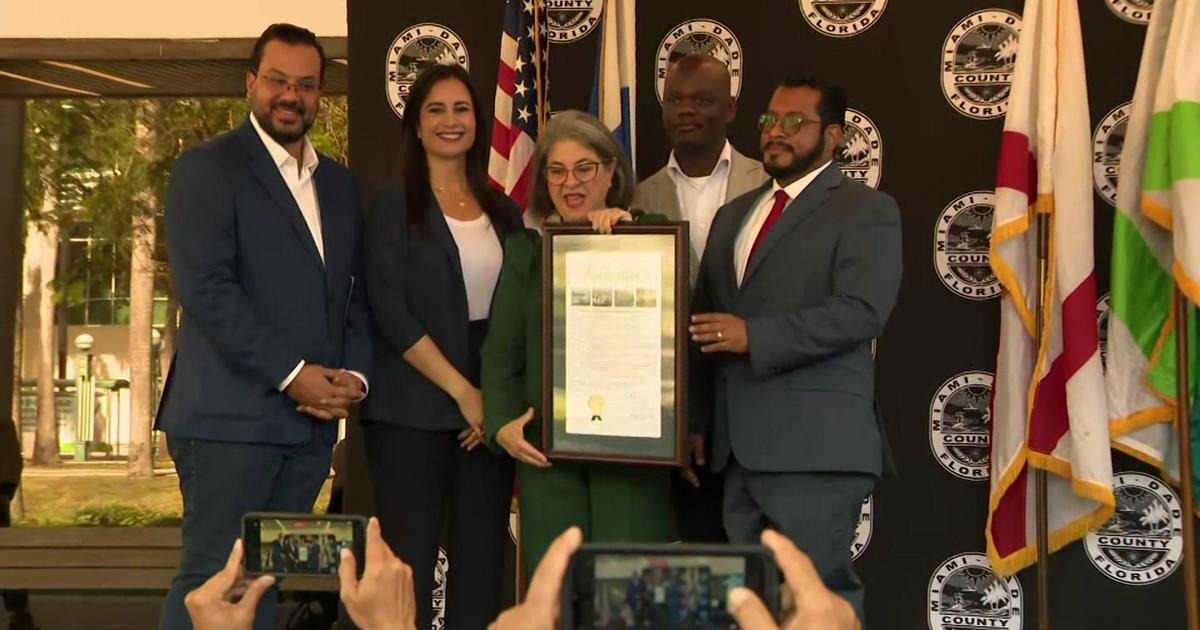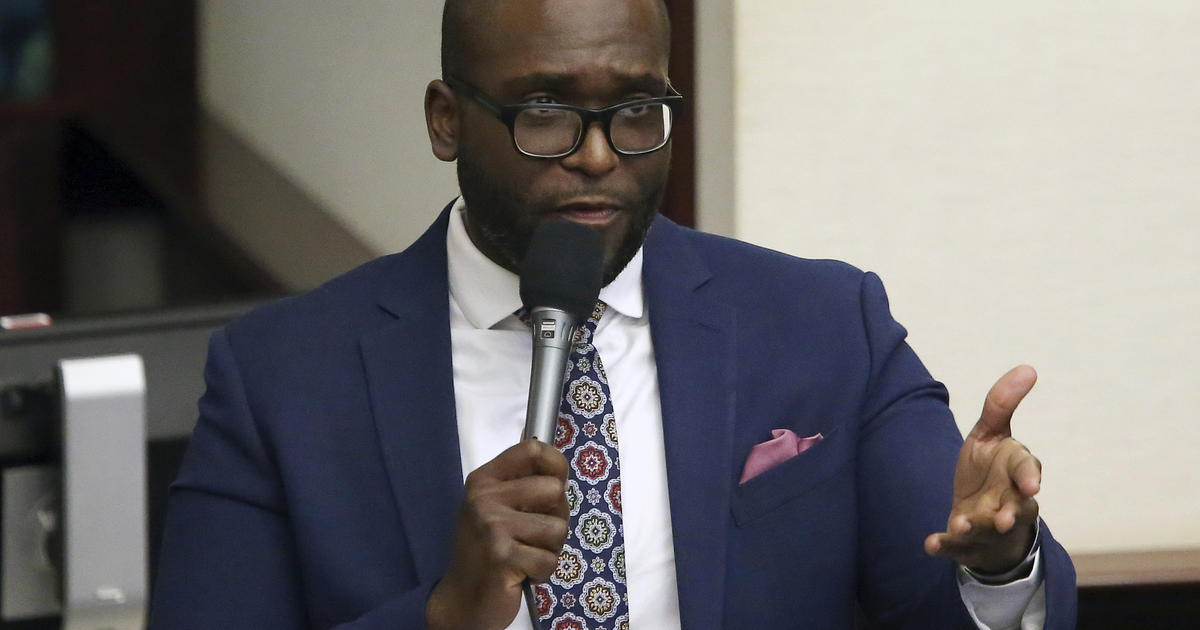I-Team: M-D Commission "Carrying Over" Controversy
It was a normal, typical meeting on January 22, 2009, at the Miami-Dade Commission chambers. But during one of the votes that day, commissioners voted 12 to zero with one absence, to approve an adjusted budget that carried wide implications for citizens.
What does that mean, and why should you care?
You should care because this is a common practice is something that likely few people completely understand or fully grasp. But the practice involves your money and how it's spent.
If you watched that January 22 commission meeting, you saw, with no debate, no dissent; these commissioners approved the building of their very own financial kitty.
They engage in this practice every year. It's a practice called budget "carry-over." It's a routine practice that state officials say no other county or city government in Florida routinely does.
"It's almost sickening," said critic Dominic Calabro. "Please, do you understand what you're thinking and saying and doing?"
The question carries a message of outrage from one of the state's most zealous protectors of citizen taxpayers', Florida tax watch's Dominic Calabro, to Miami Dade Commissioners over one of their most unique practices, budget carry-over.
"If this is not illegal, which I believe it is not," Calabro said, "it should be (illegal.)"
I-Team investigator Stephen Stock asked Miami-Dade County District 7 Commissioner Carlos Gimenez about that.
"Is that a good use of taxpayer money to have this carry-over money?" Stock asked.
"The carryover money allows you," Gimenez responded, "(it) allows you the flexibility to when you don't have those needs to carry that money over into another year when you have another kind of need."
District 4 Commissioner Sally Heyman agreed.
"I like opportunity to have it when we need it," Heyman told the I-Team.
"This is not my money. It is an office fund, it is the people's money," Heyman said.
The people's money that builds up into a financial kitty to be used any way a commissioner wants with little oversight, debate or public input.
Here's how it works.
Any money budgeted for commissioners' district offices NOT spent in one fiscal year carries over. It accrues in future years.
Commissioner Carlos Gimenez, according to unaudited county finance records, has built up $207,000 in carry over funds.
Commissioner Sally Heyman says her preliminary records show she has $1,006,000 in carry-over.
Add up all 13 Miami-Dade Commissioners' carry-over for fiscal year 2007-2008 unaudited and you are talking about almost 4 million dollars in their carry-over kitty. That's $3,816,000 of your tax dollars that has accrued in carry-over budgets over the years with little oversight, process or debate.
"This has been going on for a long time," former county commissioner Gwen Margolis told the I-Team.
Margolis served as a state senator. She also served as a Miami-Dade County commissioner for eight years. She said this carry over money is used for many things including office expenses, charities, good will, and yes, political patronage. The problem, Margolis says, there is little oversight over how the money is spent.
"I've never seen anything like it before," Margolis said. "I've never seen that kind of budgeting without oversight or without auditing."
Critics and even some commissioners such as Sally Heyman compare the carry-over office funds to the build-up of a campaign financial war chest.
The only trouble, a campaign war chest builds up through voluntary political contributions. But there's nothing voluntary about this carry-over practice. This carry-over is funded by your tax dollars. Even if the money, critics say, is used to fund district projects that help keep commissioners in office.
"There's no accountability," political scientist Dr. Sean Foreman said. "And so therefore they can give it to the groups of people in their district who are going to help them get reelected."
Doctor Sean Foreman is a Barry University political science professor specializing in local Florida governments.
"You would suspect that it would be time to clean up the financial system in Miami-Dade County," Dr. Foreman said.
The CBS4 I-Team checked with the Office of Management of Budget in Washington, DC. They said there's no such thing as carry-over in the federal budget. We traveled to Tallahassee to see how the state of Florida does it.
We spoke to many people including Florida's Chief Financial Officer, Alex Sink.
"The money, the extra monies," Alex Sink said, "For the most part, reverts back into the general revenue pot for the legislature to spend for the next year."
The I-Team checked other comparable size governments in Chicago, Detroit, Washington, D.C. and New York City. None of those governments allow carry-over.
Only in Low Angeles are elected supervisors allowed to carry over and then it's not routine practice. It takes a special request and four out of five votes.
Investigator Stephen Stock asked, "Why does Miami-Dade County do it differently?"
"My biggest concern is in allocating the money," Commissioner Sally Heyman said. "I have always objected at the city level and at the state level that I served at, of the philosophy to 'use it or lose it.' 'Here's budgeted dollars if you don't use it by x amount of time you lose it.' And you had willful, wanton disregard to conservative spending, restrictive budgeting and better accountability."
"I think all these issues are going to be on the table this year," District 8 County Commissioner Katy Sorenson said.
Partially because of the tight economic times, Miami-Dade County Commissioner Katy Sorenson says she might reconsider the practice of carry-over.
Unaudited Miami-Dade County finance records show Sorenson has $260,000 in her district carry-over kitty.
I-Team investigator Stephen Stock asked Sorenson about that money.
"Wouldn't that money be better used better served out on the street with needs that you say are out there?" Stock asked.
"Yes," Commissioner Katy Sorenson said. "I think that's a very good discussion for our budget hearings this year. What we're going to do with carry-over. If we're going to use them. Or if we should be rolling them over. And if we're going to be rolling them over they should be allocated to a specific purpose."
"And I think you make a good point." Sorenson told the I-Team.
"It's not the budget surplus that's a problem," Florida Tax Watch's Dominic Calabro said. "It's clear personal political patronage. It is wrong to start with."
Who set up these rules? You guessed it. The county commissioners themselves set up this system.
Miami-Dade is one of the few counties in Florida governed by what's called "home rule" which means Commissioners can pretty much do whatever they want. That includes setting up their own rules and financing with little oversight from the State of Florida.
We tried to ask other county Commissioners about all of this. But they never returned our calls or e-mails.
(© MMX, CBS Broadcasting Inc. All Rights Reserved.)



